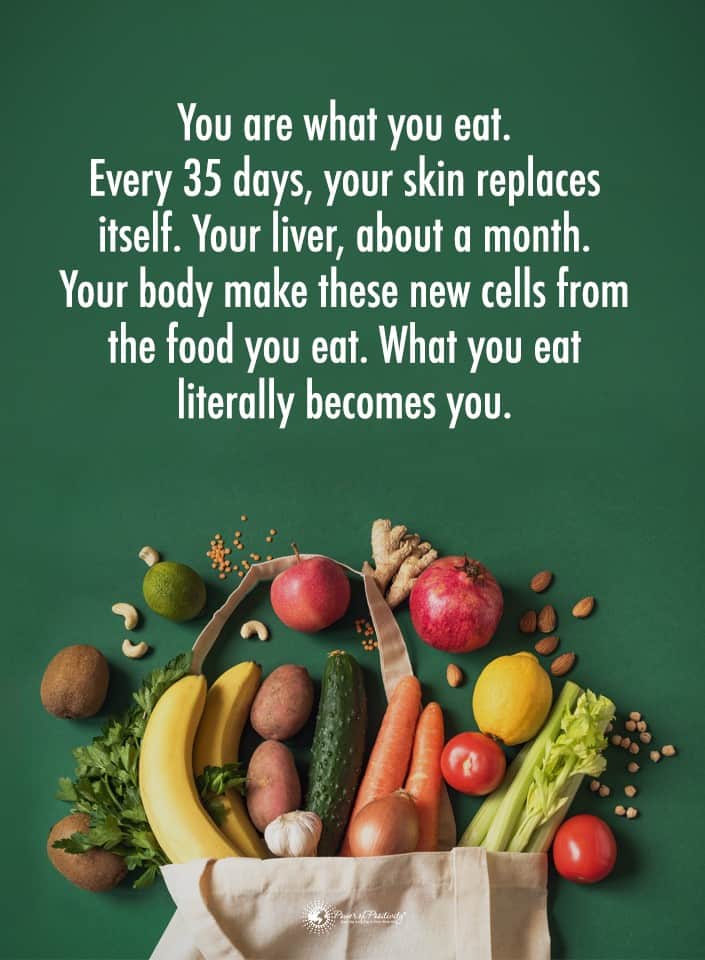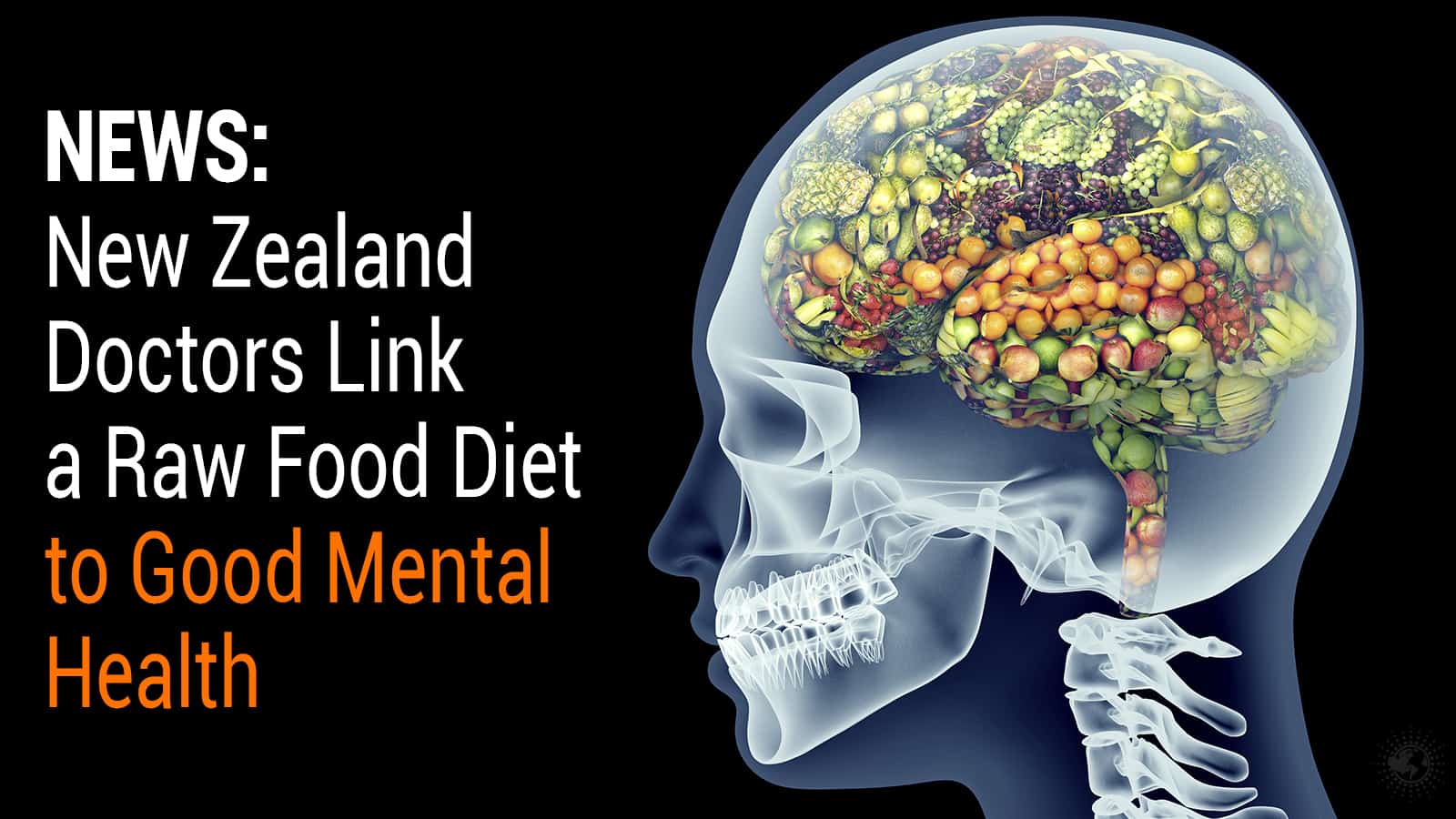A recent study from New Zealand doctors found that a raw food diet improved mental health and well-being.
The University of Otago research, published in Frontiers in Psychology, surveyed more than 1100 young adults from New Zealand. The U.S. Researchers asked them about their sleep, exercise habits, diet, and mental health.
Lead author Shay-Ruby Wickham says the research team found that sleep quality, not quantity, most strongly predicted good mental health.
“This is surprising because sleep recommendations predominantly focus on quantity rather than quality. While we did see that both too little sleep — less than eight hours — and too much sleep — more than 12 hours — were associated with higher depressive symptoms and lower well-being, sleep quality significantly outranked sleep quantity in predicting mental health and well-being.”
“This suggests that sleep quality should be promoted alongside sleep quantity as tools for improving mental health and well-being within young adults,” Ms. Wickham says.
Researchers found that quality sleep, exercise, and a high raw food diet, in that order, correlated with improved mental health. These lifestyle factors consistently predicted better well-being in the young adults in the study.
The research team found that young adults who slept around 9.7 hours per night had the fewest depression symptoms. Those who slept 8 hours per night had the most feelings of well-being.
The doctors found that young adults who ate 4.8 servings of raw fruits and veggies daily had the highest well-being. On the other hand, those who ate less than two or more than eight servings had the lowest feelings of well-being.
“Sleep, physical activity, and a healthy diet can be thought of as three pillars of health, which could contribute to promoting optimal well-being among young adults, a population where the prevalence of mental disorders is high, and well-being is suboptimal,” Ms. Wickham says.
 What the study on a raw food diet means for the health of young adults
What the study on a raw food diet means for the health of young adults
Senior author, Associate Professor Tamlin Conner of the Department of Psychology, says most previous research studies these factors separately. This one takes all three ‘pillars of health’ into account, showing how all of them can improve well-being.
“We showed that they are all important for predicting which young adults are flourishing versus suffering.”
While the study showed promising results, Conner says the findings only prove correlation, not causation.
“We didn’t manipulate sleep, activity, or diet to test their changes on mental health and well-being. Other research has done that and has found positive benefits. Our research suggests that a ‘whole health’ intervention prioritizing sleep, exercise, and fruit and vegetable intake together could be the next logical step in this research,” she says.
Other prior research shows the benefits of a raw food diet on mental health. A previous study by Dr. Tamlin Conner in 2017 showed that young adults who ate a raw food diet had better health. After two weeks of eating the recommended amount of fruits and veggies, the volunteers displayed more flourishing, motivation, and vitality. Young adults had much better health predictors than those who didn’t consume the advised amount of raw foods.
How the doctors conducted the research
For the study, Dr. Conner and her team placed 171 adults who ate low amounts of fruits and veggies into three groups:
– a control group
– a ‘momentary intervention’ group, where each person got a text message to eat more raw foods, and a voucher for food purchases
– a fruit and vegetable intervention group, where the team gave volunteers two extra servings of fruit and vegetables each day
The team asked participants to rate these three categories both before and after the study:
– Daily negative and positive moods
– Vitality, flourishing, and flourishing behaviors (curiosity, creativity, motivation)
– Anxious and depressive symptoms
Findings from the study about an increased raw food diet
Among the three groups, only the participants in the last group showed improvements in their mental health. Compared with the other groups, they had increased vitality, flourishing, and motivation in the two-week trial period. The participants in this group ate about four daily servings of fruits and vegetables, mostly apples, carrots, kiwis, and oranges.
While none of the groups reported dramatic changes in anxiety and depression symptoms, their overall well-being improved. The research team stresses that a person must eat raw foods for several months to alleviate mental health problems through nutrition. However, the study showed how just a short time of eating more fresh, whole foods could positively change.
The team concludes
“This is the first study to show that providing high-quality FV to young adults can result in short-term improvements in vitality, flourishing, and motivation. Findings provide initial validation of a causal relationship between FV and well-being, suggesting that large-scale intervention studies are warranted.”
 Final thoughts: eating a raw food diet can promote better mental health and well-being
Final thoughts: eating a raw food diet can promote better mental health and well-being
The studies above show how eating more fruits and vegetables can result in better health overall. Shockingly, around 90% of Americans don’t get enough fruits and veggies in their diet, according to the CDC. The report found that most Americans eat fruit once per day and veggies 1.7 times per day. However, the dietary guidelines recommend adults consume 1.5 to 2 cups of fruit and at least 2 cups of veggies daily.
The CDC says that increasing these numbers could mean reversing the chronic diseases plaguing the U.S. Studies consistently show that diets high in plants correlate with improved health overall, as we mentioned above.
Countries in which plants make up most of the diet tend to have lower disease reports. The Blue Zone regions – Costa Rica, California, Italy, Japan, and Greece – have the world’s healthiest people. While the diets vary slightly across these regions, all of them have one thing in common: tons of plants.
Try this experiment out for yourself to see how you feel. For two weeks, eat at least the daily recommended guidelines of fruits and veggies. If you feel more vibrant and energetic, you can thank nature for improving your health!




















